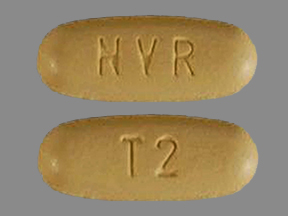Aliskiren / Amlodipine Side Effects
Medically reviewed by Drugs.com. Last updated on Dec 18, 2024.
Applies to aliskiren / amlodipine: oral tablet.
Important warnings
This medicine can cause some serious health issues
Do not use if you are pregnant. Stop using the medicine and tell your doctor right away if you become pregnant.
If you have diabetes, you should not use aliskiren and amlodipine together with certain heart or blood pressure medicines (such as Accupril, Benicar, Capoten, Cozaar, Diovan, Lotensin, Mavik, Prinivil, Vasotec, and many others).
You should not take aliskiren and amlodipine if you are also using cyclosporine or itraconazole.
Get emergency medical help if you have any of these signs of an allergic reaction while taking aliskiren / amlodipine: hives; vomiting, severe stomach pain; dizziness, difficult breathing; swelling of your face, lips, tongue, or throat.
Call your doctor at once if you have:
-
a light-headed feeling, like you might pass out;
-
chest pain or pressure, pain spreading to your jaw or shoulder;
-
little or no urinating; or
-
high potassium--slow heart rate, weak pulse, muscle weakness, tingly feeling.
Common side effects may include:
-
swelling in your hands, ankles, or feet;
-
dizziness, tired feeling;
-
cough;
-
diarrhea;
-
stomach pain, upset stomach; or
-
flu symptoms (fever, chills, body aches).
This is not a complete list of side effects and others may occur. Call your doctor for medical advice about side effects.
For healthcare professionals
Applies to aliskiren / amlodipine: oral tablet.
Cardiovascular adverse events
Aliskiren:
- Rare (less than 0.1%): Hypotension
Amlodipine:
- Common (1% to 10%): palpitations
- Uncommon (0.1% to 1%): Arrhythmia (including ventricular tachycardia and atrial fibrillation), bradycardia, chest pain, hypotension, peripheral ischemia, postural hypotension, tachycardia, vasculitis
- Rare (less than 0.1%): Myocardial infarction, angina[Ref]
Dermatologic
Aliskiren:
- Common (1% to 10%): Rash
- Rare (less than 0.1%): Angioedema (involving the face, hands, or whole body)
- Postmarketing reports: Severe cutaneous adverse reactions (including Stevens Johnson syndrome and toxic epidermal necrolysis)
Amlodipine:
- Common (1% to 10%): Rash, erythematous rash
- Uncommon (0.1% to 1%): Angioedema, erythema multiforme, increased sweating, maculopapular rash, pruritus
- Rare (less than 0.1%): Alopecia, dermatitis, skin discoloration, skin dryness, urticaria, lichen planus, telangiectasia[Ref]
Endocrine
Amlodipine:
- Postmarketing reports: Gynecomastia[Ref]
Gastrointestinal
Aliskiren:
- Common (1% to 10%): Diarrhea, abdominal pain, dyspepsia, gastroesophageal reflux (these side effects appear to be dose related)
- Postmarketing reports: Nausea, vomiting
Amlodipine:
- Common (1% to 10%): Nausea, dysphagia, abdominal pain
- Uncommon (0.1% to 1%): Anorexia, constipation, diarrhea, dry mouth, dyspepsia, flatulence, gingival hyperplasia, pancreatitis, vomiting
- Rare (less than 0.1%): Gastritis, increased appetite, loose stools, taste perversion, dysgeusia[Ref]
Genitourinary
Amlodipine:
- Uncommon (0.1% to 1%): Micturition disorder, micturition frequency, nocturia
- Rare (less than 0.1%): Dysuria, polyuria[Ref]
Hematologic
Amlodipine:
- Uncommon (0.1% to 1%): Leukopenia, purpura, thrombocytopenia[Ref]
Hypersensitivity
Aliskiren:
- Frequency not reported: Angioedema (face, hands, and body) with or without respiratory symptoms
- Postmarketing reports: Angioedema
Amlodipine:
- Uncommon (0.1% to 1%): Allergic reaction[Ref]
Hepatic
Amlodipine:
- Postmarketing reports: Jaundice and hepatic enzyme elevations (mostly consistent with cholestasis or hepatitis)-Some cases were severe enough to require hospitalization[Ref]
Metabolic
Aliskiren:
- Uncommon (0.1% to 1%): Elevated uric acid, gout, renal stones
- Postmarketing reports: Peripheral edema, hyponatremia
Amlodipine:
- Uncommon (0.1% to 1%): Hyperglycemia, thirst, weight loss, weight gain
- Very rare (less than 0.01%): Acute porphyria exacerbation
- Frequency not reported: New-onset diabetes[Ref]
Musculoskeletal
- Uncommon (0.1% to 1%): Asthenia, rigors
Amlodipine:
- Common (1% to 10%): Myalgia
- Uncommon (0.1% to 1%): Arthralgia, arthrosis, muscle cramps
- Rare (less than 0.1%): Hypertonia, muscle weakness, twitching, ataxia[Ref]
Nervous system
Aliskiren:
- Frequency not reported: Headache, dizziness, fatigue, episodes of tonic-clonic seizures with loss of consciousness
Amlodipine:
- Common (1% to 10%): Headache, dizziness, somnolence
- Uncommon (0.1% to 1%): Hypoesthesia, paresthesia, peripheral neuropathy, postural dizziness, syncope, tinnitus, tremor
- Rare (less than 0.1%): Migraine[Ref]
Ocular
Amlodipine:
- Uncommon (0.1% to 1%): Abnormal vision, conjunctivitis, diplopia, eye pain
- Rare (less than 0.1%): Abnormal visual accommodation, xerophthalmia[Ref]
Psychiatric
Amlodipine:
- Rare (less than 0.1%): Abnormal dreams, anxiety, depersonalization, depression, insomnia, nervousness, agitation, amnesia, apathy[Ref]
Renal
Amlodipine:
- Rare (less than 0.1%): Interstitial nephritis[Ref]
Respiratory
Aliskiren:
- Frequency not reported: Nasopharyngitis, upper respiratory tract infection, cough
Amlodipine:
- Common (1% to 10%): Epistaxis
- Uncommon (0.1% to 1%): Dyspnea
- Rare (less than 0.1%): Coughing, rhinitis
- Postmarketing reports: Pulmonary edema was reported during a study of patients with NYHA Class III or IV heart failure without clinical symptoms or objective evidence of underlying ischemic disease.[Ref]
Other
- Rare (less than 0.1%): Parosmia
- Frequency not reported: Tinnitus[Ref]
References
1. (2010) "Product Information. Tekamlo (aliskiren-amlodipine)." Novartis Pharmaceuticals
More about aliskiren / amlodipine
- Check interactions
- Compare alternatives
- Dosage information
- During pregnancy
- Drug class: miscellaneous antihypertensive combinations
Patient resources
Other brands
Related treatment guides
Further information
Aliskiren/amlodipine side effects can vary depending on the individual. Always consult your healthcare provider to ensure the information displayed on this page applies to your personal circumstances.
Note: Medication side effects may be underreported. If you are experiencing side effects that are not listed, submit a report to the FDA by following this guide.

